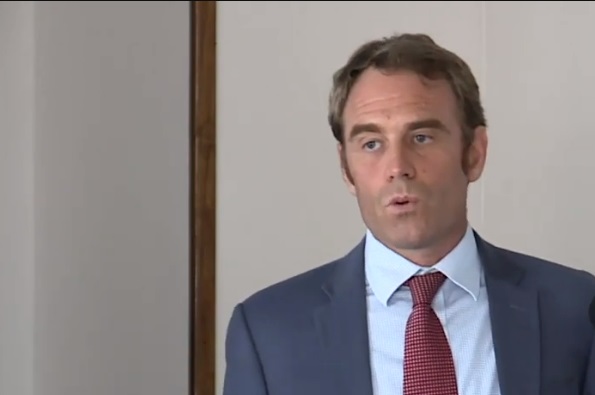Mozambique: Unpaid debt service from 2024 all settled – government
IMF expects that Mozambique maintains reforms despite TSU protests

Screen grab: Miramar
The International Monetary Fund (IMF) representative in Mozambique, Alexis Meyer-Cirkel, said yesterday that he hoped Mozambique would remain committed to carrying out reforms, despite challenges to the Single Salary Table (TSU).
“The government has a very broad basket of reforms and the expectation is that it will be maintained,” Meyer-Cirkel said in response to a question from Lusa about the effect of the protests on the sidelines of a presentation in Maputo.
The TSU, just one of such reforms, was implemented in October by the government to simplify, clarify and re-balance payments in the civil service, but several professions have complained about framing errors, loss of subsidies and salary reduction.
“I have been following the protests in the newspapers, though I don’t know the details of the claims,” said the IMF representative, admitting that “the complexity of the reforms” might “raise issues”.
“I think the government is carrying out the whole exercise to try to clarify the spirit of the [TSU] reform and resolve any difficulties which arise. I do not see this as out of the ordinary,” he added.
Meyer-Cirkel believes in the TSU’s virtue of “simplifying the State’s salary scale”, introducing “clearer criteria” of classification, and stimulating “increased effectiveness”.
“In the past,” the IMF representative stressed, “there has been a very strong increase in expenditure on wages, and it is very important that, in the long term, this dynamic is contained”.
The memorandum with the government underpinning the US$470 million IMF support programme stipulates that Mozambique should, over the next four years, reduce public sector wages from 13.8% to 10.8% of the Gross Domestic Product (GDP).
READ: Mozambique: Conditions for IMF support – A Verdade
In May, days after the agreement with the IMF, the Mozambican president admitted that the financial assistance programme would “hurt a little”, while emphasising that “something needs to be done”, instead of “waiting”.
Doctors and teachers have most visibly challenged the TSU, while the government has created a commission that will work for a year to resolve every complaint from civil servants about the new table within 15 days.
The doctors had scheduled a strike for today, but it was provisionally postponed as a result of advances in the negotiations.
The memorandum between the Mozambican executive and the IMF provides for other reforms, too.
READ: Mozambique |TSU: Inconsistencies might be due to IMF requirements, analyst says












Leave a Reply
Be the First to Comment!
You must be logged in to post a comment.
You must be logged in to post a comment.